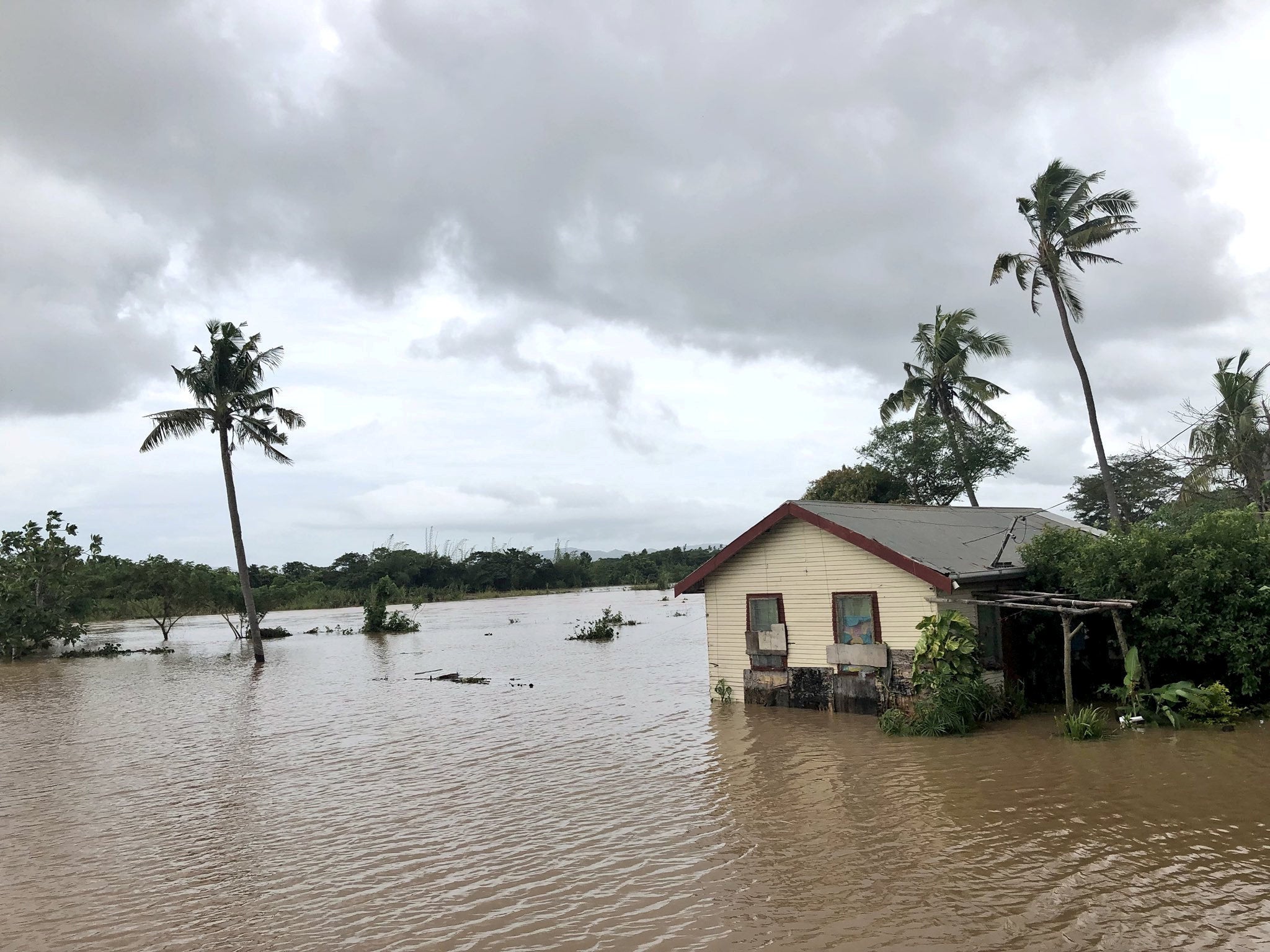Fiji's existence threatened by 'frightening new era' of deadly climate change
Thousands remain in evacuation centres following the latest cyclone to batter the tropical islands

Your support helps us to tell the story
From reproductive rights to climate change to Big Tech, The Independent is on the ground when the story is developing. Whether it's investigating the financials of Elon Musk's pro-Trump PAC or producing our latest documentary, 'The A Word', which shines a light on the American women fighting for reproductive rights, we know how important it is to parse out the facts from the messaging.
At such a critical moment in US history, we need reporters on the ground. Your donation allows us to keep sending journalists to speak to both sides of the story.
The Independent is trusted by Americans across the entire political spectrum. And unlike many other quality news outlets, we choose not to lock Americans out of our reporting and analysis with paywalls. We believe quality journalism should be available to everyone, paid for by those who can afford it.
Your support makes all the difference.The South Pacific islands that make up Fiji are in the grip of a “frightening new era” of extreme weather, the country’s prime minister has said, after flooding from a cyclone has killed at least four people.
Voreqe Bainimarama said the island nation now faces a “fight for survival” as climate change brings “almost constant” deadly tropical cyclones.
The islands avoided a direct hit by Cyclone Josie on Sunday, but the storm brought heavy rains, high winds and flooding, which caused extensive damage to homes, businesses and vehicles on the main island of Viti Levu.
More than 1,000 people remained in evacuation centres this week following the cyclone.
Mr Bainimarama said climate change was causing extreme weather events to become more severe and occur more often.
In 2016 Cyclone Winston, the most intense tropical storm in the southern hemisphere on record, left 44 people dead and 40,000 homes significantly damaged or destroyed after making landfall on Fiji.
The category 5 cyclone saw ten-minute sustained wind speeds of 175kmh (110mph), and a record wind gust of 306kmh (190mph) was measured.
In the past, major storms have been less frequent on the islands, with the strongest cyclone before Winston being the Category 4 cyclone Evan, in 2012, in which no one died. The deadliest cyclone before Winston was 1979’s Cyclone Meli, which claimed 53 lives.
"We are now at an almost constant level of threat from these extreme weather events," Mr Bainimarama said on Tuesday.
Climate change had made the danger “more severe”, he said, and called for global action on reducing carbon emissions. “We need to get the message out loud and clear to the entire world about the absolute need to confront this crisis head on.”
“As a nation we are starting to build our resilience in response to the frightening new era that is upon us.” It is a “fight for our very survival”, he added. “We are now at an almost constant level of threat”.
He urged countries to act to limit the global temperature increase, as agreed under the Paris climate accord.
“It is the only way to prevent catastrophe for the whole world and especially for vulnerable nations such as our own,” he said.
He also cited a recent report by the World Bank and Fiji officials which indicated the country’s annual losses from extreme weather events could total 6.5 per cent of the economy by 2050.
Join our commenting forum
Join thought-provoking conversations, follow other Independent readers and see their replies
Comments